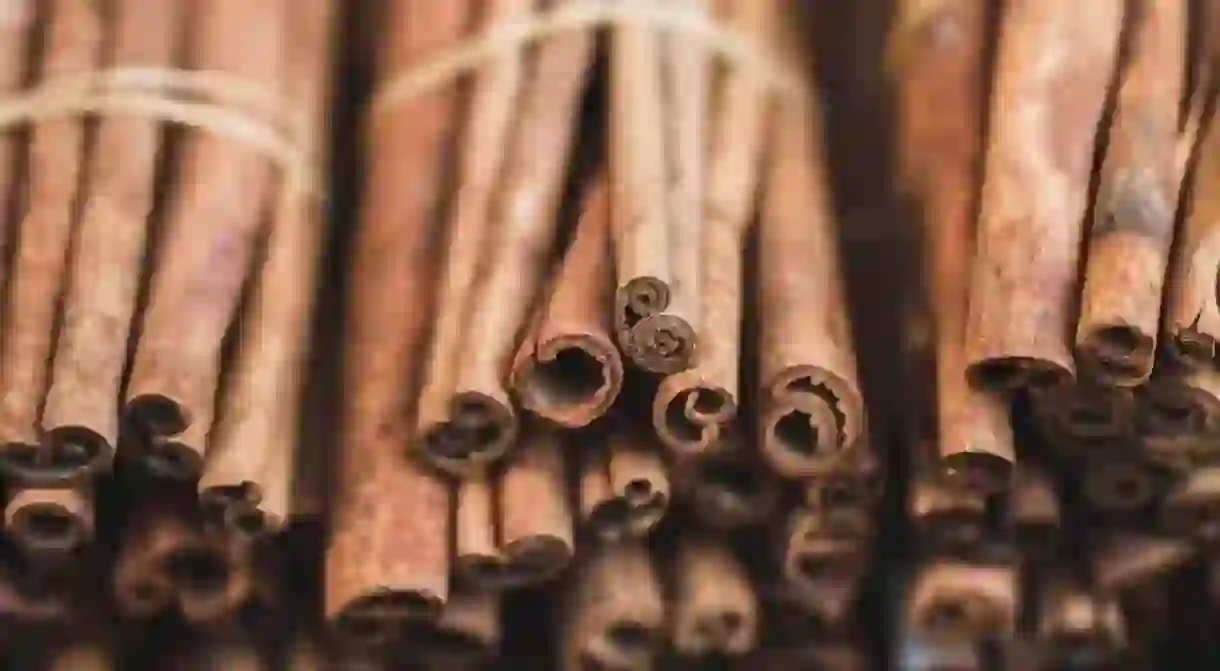Traditional Souvenirs to Buy in Sri Lanka

No trip to Sri Lanka is complete without a dose of retail therapy. After enjoying its tropical climate, picturesque beaches and delectable food, you need to take a slice of the country home with you. And a visit to the Barefoot store or one of the state-owned Laksala souvenir outlets should satisfy all your shopping urges. Silken saris, precious gemstones, ceremonial masks and carvings – here’s what to buy to bring back the best of the country’s artisanal expertise.
Saris and sarongs

Sri Lanka‘s traditional clothing consists of saris for women and sarongs for men. Some women will wear sarongs as well, but as a set, with a matching blouse. There are plenty of places to find sarongs in Colombo and the rest of Sri Lanka, but the best come from Barefoot, a brand selling geometric designs by founder Barbara Sansoni. Barefoot also sells saris, as does Selyn Fair Trade, which founder Sandra Wanduragala started in her garage in 1991.
Jewellery and gems

Sapphires and moonstones are hugely popular purchases in Sri Lanka – to the point where a trip there seems incomplete without one. Some are mined in Ratnapura, in the southeast of the country, while others are imported. The little town of Galle Fort is famous for stores selling gems and jewellery (do remember to use your bartering skills). There are also plenty of contemporary jewellery makers, including Two Dots Jewellery, who sell at Barefoot or via their online store.
Handwoven items
The handloom is a traditional artisanal tool that has been used by women in Sri Lanka since ancient times. Cotton and silk are the most commonly used materials. Saris and sarongs made on handlooms are works of art in themselves, especially when the threads are of good quality. Barefoot and Selyn sell handwoven home items such as tablecloths and napkins, made by female cooperatives around the island.
Moonstone carvings
Buddhist temples in Sri Lanka, particularly those in Anuradhapura and Polonnaruwa, have a carved, half-moon-shaped stepping stone at the entrance. This is called a moonstone, and they’ve been used as religious imagery for centuries. Usually, they’re carved with different images to represent the different stages of life. A half lotus is common, as are various animals, like swans, elephants, lions, horses and bulls. Small moonstone carvings are now made as souvenirs for tourists and can be found in limestone or wood, in a range of sizes.
Buddha and elephant figurines

All around Sri Lanka are state-owned souvenir shops called Laksala, where visitors can buy figurines of Buddha, elephants, peacocks and leopards. Laksala is the best shop for traditional handicrafts, and there are a couple of branches in Colombo, as well as in other major cities on the island. Their size can vary wildly, with the smaller versions making for good souvenirs. Paradise Road also sells handmade figurines and statues, along with some other handmade goods. Most souvenir shops sell wooden Buddha figures and painted elephants.
Tea

The hilly countryside of Sri Lanka is often covered in tea plantations, and each tea shop is better than the next. Favourite teas include Dilmah, Mackwoods and Teaeli. The traditional tea of Sri Lanka is black tea, which comes in several variations, depending on the altitude it’s grown at.
Spices
Spices can be found in all Sri Lankan food, to the point where a good rice and curry could have more than eight spices in it. The best places to buy these flavour sensations are the local markets, such as Pettah or Kandy. Do try to pick up some Sri Lankan cinnamon while you’re at it, which is renowned for its quality.
Books by Sri Lankan authors
Sri Lankan literature may not be well-known globally, but there’s a great collection of local writers waiting to ignite your imagination. Plus, reading books from the place you’re about to visit is a great way to acquire local knowledge before you jet off. Books to look out for include Running in the Family (2009), a fictionalised memoir by Booker-Prize-winning poet and filmmaker Michael Ondaatje. Then there’s Serendipity (2009) by Ashok Ferrey – a comedy thriller about a London-based barrister inheriting Sri Lankan land – and Island of a Thousand Mirrors (2014) by Nayomi Munaweera, set during the Sri Lankan Civil War.
Ayurvedic beauty products
The natural medicine of Ayurveda is popular throughout Sri Lanka. You can get exceptional Ayurvedic treatments on the island, as well as shop for Ayurvedic beauty products such as massage oils, body washes, shampoos, and hair and scalp treatments. Local favourites include Spa Ceylon and Siddhalepa. Kemara also has natural Ayurvedic products for sensitive skin. Don’t forget to try the Fuller’s Earth face mask by Iris Garden.
Raksha masks

Every souvenir shop you go to in Sri Lanka will have Raksha masks on display, ranging from tiny magnets to gigantic wall art. They’re used in traditional Sri Lankan dances and as decorative pieces, depicting the ancient Raksha people, who formed the court of King Ravana in Ramayana legend. There are several types of Raksha, mainly nagas (made of cobra heads) and garudas (demons).
Did you know – Culture Trip now does bookable, small-group trips? Pick from authentic, immersive Epic Trips, compact and action-packed Mini Trips and sparkling, expansive Sailing Trips.













